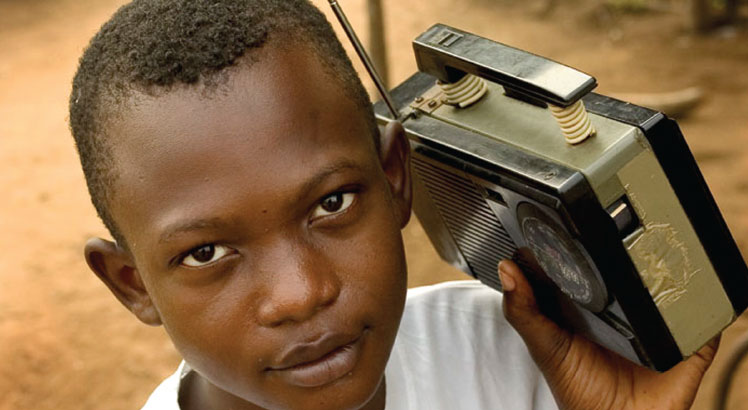Radio stations under siege
A complex debate on media freedom is underway in Malawi, with opinions strongly divided. It comes after authorities revoked the licenses of several independent broadcasters over unpaid fees.
In August, the Malawi Communications Regulatory Authority (Macra) revoked the licenses of a number of private radio and television stations over what it said was the non-payment of license fees.
Ufulu FM, Ufulu Television, Galaxy FM, Joy Radio, Sapitwa FM, Capital Radio, Angaliba Radio, Angaliba Television, and Rainbow Television are now off the air. The closure of further private broadcasters is expected.

Some media experts are applauding the enforcement of a law that has long not been applied. Others are concerned that the government is trying to silence its critics.
In a DW interview, Macra communications manager Zadziko Mankhambo defended the move, saying the regulatory body was acting within the law.
“This is a regulated industry and should you not adhere to any license condition, there are penalties. You can have your license revoked,” he said.
The broadcasters that were stripped of their licenses had been given until August 22 to settle their outstanding fees, but payment was not made, Mankhambo told DW.
The regulatory body has indicated that it plans to revoke at least 23 broadcasting licenses by the end of the year and recover in excess of $100 000 in unpaid fees.
Malawi has a total 95 broadcast licensees.
An ill-timed move
The local chapter of the Media Institute of Southern Africa (Misa) has criticised the move by Macra as ill-timed.
“The government itself has acknowledged that the economy is in tatters, so to enforce license revocation at a time that the economy is not doing well (…) is not helpful,” Misa-Malawi chairperson Tereza Ndanga told DW.
The Misa chapter does not encourage non-compliance when it comes to license fees, Ndanga said.
Media Council of Malawi (MCM) chair Wisdom Chingwede told DW he is worried about the regulator’s clampdown.
“There ought to be an amicable solution to the problem that we have at hand,” Chingwede told DW. “It was Macra’s fault to have delayed this long with licenses that are unpaid.”
Misa has sent a written complaint to President Lazarus Chakwera over the issue.
The institution has also noted the progress the country had made in ensuring access to information and media freedom.
Media job cuts
Dr Sydney Kankuzi, a media and communications expert at the University of Malawi, told DW he supports the government’s overall effort to regulate the broadcasting sector.
“You have a Communications Act that empowers a parastatal to regulate and enforce the regulation. They are doing [that] and then one blames them for that and accuses them of clamping down on media freedom?” Kankuzi said.
“Maybe there is just a misunderstanding of what is the exact law of that regulator.”
The closure of radio and television stations is likely to mean more job cuts. Some 250 media workers are already unemployed in Malawi.
Robert Edward, a television personality, has not had work since MACRA stripped Rainbow Television and other broadcaster of its licenses. He told DW,
“I’ve been highly affected with the revocation of the license. I was making ends meet until all of a sudden…”
Last week, Macra took a U-turn when it hastily renewed the licence of Capital FM after the station had paid what it owed the regulator and re-applied to remain on air.
The stunning turnaround is thought to have come in reaction to a backlash from the international community opposed to the shrinking media space.
It came just days after Macra director general Daud Suleman said despite Capital Radio Malawi writing the regulator asking for an extension, there is no law or regulation that would facilitate such.
He said a fresh licence application will be reviewed and assessed by the Macra board on October 24 2022.
Suleman said: “Capital Radio paid its debts outside the valid period, therefore, they do not have a licence and cannot broadcast. All datelines were duly communicated and agreed by both parties, Macra and Capital Radio, and it was everyone’s expectation that each party plays its part.
“The initial 30-day period for Capital Radio to cease and desist from broadcasting is today [yesterday] and the authority expects that the station respects that obligation.”
Unlike Capital Radio, other radio and television stations that have had their licences revoked—Rainbow Television, Angaliba Television, Ufulu Television, Sapitwa FM, Joy Radio, Ufulu FM and Galaxy FM—have been struck off air.






One Comment